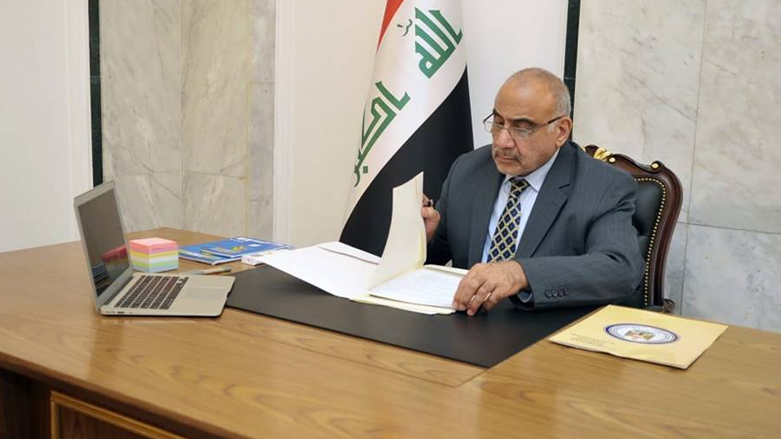Iraqi prime minister says he will resign amid continued bloodshed at protests

ERBIL (Kurdistan 24) – Iraqi Prime Minister Adil Abdul Mahdi announced on Friday he would submit his resignation to parliament after the country witnessed one of the bloodiest days of national protests that began two months ago.
Abdul Mahdi said he had listened “carefully” listened to a Friday sermon given by a representative of Iraq’s top Shia cleric, Ali al-Sistani, who called on the national legislature to “reconsider its support” for the current government after a day of unprecedented violence.
“In response to [Sistani's] call, and to facilitate its completion as soon as possible, I will present an official letter to parliament requesting the resignation of the current government to enable parliament to weigh its options,” said Abdul Mahdi.
On Thursday, Iraqi security forces killed upwards of forty demonstrators in the capital of Baghdad and in the southern cities of Nassiriya and Najaf. Late Wednesday, protesters torched an Iranian consulate in Najaf, the holy Shia city where Sistani is based.
Protester deaths have topped 400, according to a Reuters tally.
When they began taking to the streets at the start of October, demonstrators expressed stark grievances about the lack of jobs, poor government services, and widespread corruption. They have since called for radical change in Iraq’s political system, which they say fails to address their needs, but instead serves the interests of a small governing elite.
At least three influential political leaders seem to be backing a bid to remove Abdul Mahdi, including clerics Muqtada al-Sadr and Ammar al-Hakim and former Prime Minister Haidar al-Abadi.
Editing by John J. Catherine
